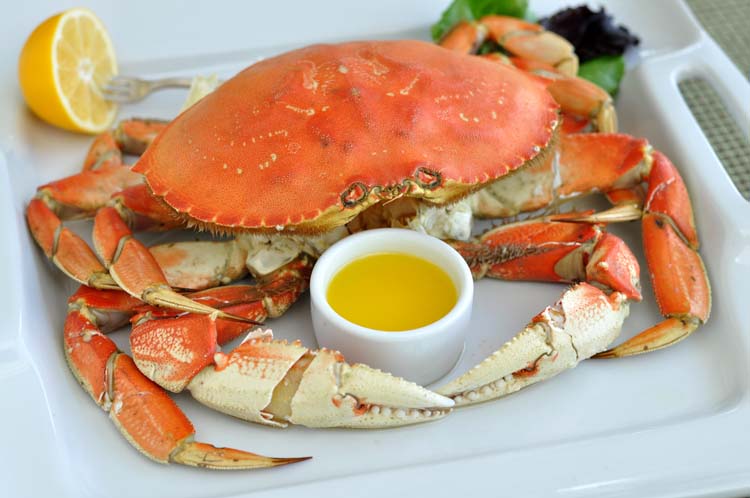Post by south on Mar 29, 2019 15:08:04 GMT
Recreational Crabbing is Open Along the Entire Oregon Coast
![]()
Thursday, March 28, 2019
The Oregon Department of Agriculture (ODA) and the Oregon Department of Fish and Wildlife (ODFW) recreational crabbing is now open for the entire Oregon Coast. Crab samples taken from the area of Cape Blanco, north of Port Orford, to the California border indicate that levels of the marine biotoxin domoic acid have dropped below the closure limit. Two consecutive tests below the limit are required to open a closed area.
When cooking crab, it is always recommended that crab be eviscerated and the guts, or butter, discarded prior to cooking. When whole crab are cooked in liquid, domoic acid may leach into the cooking liquid. It is recommended to discard the cooking liquid, and do not use it in other dishes, such as sauces, broths, soups, roux, etc. The consumption of crab viscera is not recommended.
ODA and ODFW will continue monitoring marine biotoxins in crab and shellfish to ensure the concentrations remain below the closure limit.
For up-to-date recreational shellfish and crabbing information, call ODA’s shellfish safety information hotline at (800) 448-2474 before clamming or crabbing or visit the ODA shellfish closures web page at
www.oregon.gov/oda/programs/foodsafety/shellfish/pages/shellfishclosures.aspx
For commercial crabbing, ODA and ODFW have lifted the requirement that all crab harvested from Cape Blanco to the California border be eviscerated (gutted). An evisceration requirement will remain in place for all crab harvested from any area outside of Oregon with crab viscera samples for domoic acid of 30 ppm or higher, which includes all crab harvested off California at this time. For commercial crabbing information visit the ODA commercial crab biotoxin information webpage.

[/div]
Thursday, March 28, 2019
The Oregon Department of Agriculture (ODA) and the Oregon Department of Fish and Wildlife (ODFW) recreational crabbing is now open for the entire Oregon Coast. Crab samples taken from the area of Cape Blanco, north of Port Orford, to the California border indicate that levels of the marine biotoxin domoic acid have dropped below the closure limit. Two consecutive tests below the limit are required to open a closed area.
When cooking crab, it is always recommended that crab be eviscerated and the guts, or butter, discarded prior to cooking. When whole crab are cooked in liquid, domoic acid may leach into the cooking liquid. It is recommended to discard the cooking liquid, and do not use it in other dishes, such as sauces, broths, soups, roux, etc. The consumption of crab viscera is not recommended.
ODA and ODFW will continue monitoring marine biotoxins in crab and shellfish to ensure the concentrations remain below the closure limit.
For up-to-date recreational shellfish and crabbing information, call ODA’s shellfish safety information hotline at (800) 448-2474 before clamming or crabbing or visit the ODA shellfish closures web page at
www.oregon.gov/oda/programs/foodsafety/shellfish/pages/shellfishclosures.aspx
For commercial crabbing, ODA and ODFW have lifted the requirement that all crab harvested from Cape Blanco to the California border be eviscerated (gutted). An evisceration requirement will remain in place for all crab harvested from any area outside of Oregon with crab viscera samples for domoic acid of 30 ppm or higher, which includes all crab harvested off California at this time. For commercial crabbing information visit the ODA commercial crab biotoxin information webpage.
Contact: Judy Dowell, Oregon Department of Agriculture, 503-871-2118

[/div]
